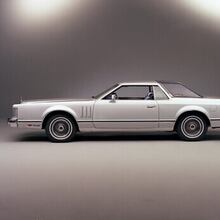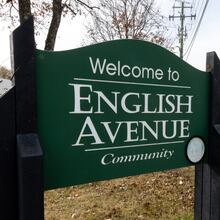DALTON — You’re nearing 80. You built the world’s largest carpet-making company. Warren Buffett bought that company. You’re beyond-comfortable rich. And you developed an upscale golf community that allows unfettered access to your recreational passion.
What now?
If you’re Bob Shaw – the founder and long-time CEO of Shaw Industries who retired in 2005 – you get back in the flooring game with little doubt that, once again, you’ll walk among the Carpet Kings of Dalton.
Engineered Floors, a company Shaw started in 2009, unveiled plans earlier this month to invest $450 million into building two new factories that will eventually hire 2,400 more people across Northwest Georgia. It was Georgia’s largest jobs announcement since 2006 when Kia and AirTran promised thousands of jobs.
Engineered, in four short years, has become the nation’s fifth largest carpet maker.
“We expect to be a player in the carpet business over a long period of time,” Shaw, now 81, said in an interview with The Atlanta Journal-Constitution. “Obviously, if you’re going into business, and business is a game, you play the game to win.”
Carpet put Dalton, 90 miles north of Atlanta, on the map, and Shaw did more than anybody else to transform the region into a manufacturing powerhouse. From its hillside perch, Shaw Industries’ corporate headquarters keeps watch over two dozen of its factories and distribution centers in the town below.
Shaw says he got back into the carpet business to fill an industry niche and bring back jobs to the area. Few doubt that patriarch Shaw’s entrepreneurial magic will, once again, boost a region that has lost 16,000 jobs since 2006.
"All the great masters got better with each painting. And, certainly, by starting another (company), he will achieve the same results," said T.J. Kaikobad, who owns a popular downtown restaurant and serves on a number of Dalton civic organizations. "I hope he's here another 100 years. He is Dalton."
Not everybody, though, is rooting for an Engineered Floors touchdown, an apt metaphor given Shaw’s embrace of sports analogies and a fierce competitiveness that dates to his days quarterbacking the Dalton High School Catamounts in the late 1940s.
Engineered, after all, competes with many of the region’s hard-hit carpet makers, including Shaw Industries. Shaw, the entrepreneur, didn’t receive many hosannas from carpet industry executives with his latest announcement, particularly with its $106 million in state incentives.
“The carpet industry has been through the worst period it ever had in its history and then to have another player come in …” said Julian Saul, formerly the No. 2 executive at Shaw Industries and a lifelong friend of Bob Shaw. “I’m sure he wants to help Dalton rebound, but any business he gets is coming off the top of an (already) competitive Dalton base.”
‘Control their own destiny’
On May 1, Shaw let Gov. Nathan Deal and other state and local dignitaries announce Engineered’s expansion. The public celebration that typically accompanies developments of such magnitude was muted. Shaw’s wife of 56 years, Anna Sue, was dying of cancer. Six days later, she died.
They married in 1957 as Shaw was about to transform the family carpet business into a flooring juggernaut. Shaw’s father, Clarence, a Georgia Tech graduate, began in the mid-1940s dyeing the tufted bed sheets, robes and small rugs that Dalton was renowned for. A teenage Bob Shaw drove a truck for his father’s company.
Shaw then spent four years at the University of the South, across the mountains in Sewanee, Tenn., without earning a degree. When his father died in 1958, Bob and brother J.C. retooled the company into a dyeing and finishing operation that catered to the burgeoning carpet industry. With 10 employees and four machines, Star Finishing was poised to ride Dalton’s rise.
The Shaws began making carpet in 1967 with the acquisition of the Philadelphia Carpet Company in Cartersville. A pattern was set: grow by acquisition, invest in technology and branch out into virtually every facet of the industry’s production-to-delivery system.
Shaw Industries also moved into hardwood and vinyl flooring. By the late ’70s the company had broached the ranks of Top Five carpet makers. By 1986, Shaw was No. 1.
Its climb wasn’t without setback. Shaw took “vertical integration” a step too far, attempting in 1995 to sell direct to the public. The company lost big bucks, its stock suffered, and the CEO soon learned the folly of competing against major retailers, like Home Depot.
“One of the phrases that cropped up over and over again in the 1980s and ’90s, when they were really on the move, was that they wanted to ‘control their own destiny,’” said Randy Patton, a Kennesaw State professor who wrote the book “Shaw Industries: A History” in 2003. “And Shaw was the guy more than anybody else who consolidated the carpet industry. He created a company that eventually revolutionized the industry with their tactics, techniques and technology.”
Buffett’s Berkshire Hathaway bought Shaw Industries in 2001 for $2.4 billion. The recession hit the carpet industry five years later as builders realized the housing industry was about to crater. Carpet company revenues plunged 40 percent. The unemployment rate across the Dalton region nearly tripled to 12.6 percent by 2009.
“We’ve been in a depression as far as the industry is concerned,” Shaw said. “We haven’t had an up year since 2006.”
Back in the game
Shaw rode out the recession at The Farm, his Tom Fazio-designed golf course and upscale residential community in nearby Rocky Face. But he “got bored” with golf, Shaw told the Chattanooga Times Free Press, and itched to get back into the carpet game.
The famously private Shaw declined to comment on a variety of personal issues with the AJC.
“He’s had this sense of urgency his whole life,” said James Lesslie, Shaw’s top assistant at Engineered. “In the three-and-a-half years that this company has been in existence we’ve had five phases of expansion. … I worked for him in the ’90s and I can honestly tell you he absolutely has the same level of energy.”
Shaw bought and refurbished Dalton’s old city hall as headquarters for Engineered Floors. He bet correctly that apartment construction would lead the post-recession building boom. Homeowners who had delayed replacing carpets were also likely to be in the market for Engineered products.
The company opened plants in Calhoun and Dalton that employ 1,400. Polyester, not yarn, is his raw material of choice, a malleable, easy-to-dye product that can readily suit customers’ fickle preferences. Shaw bought Dream Weaver Carpet of Chatsworth, Ga., in 2011, which allowed entrée into the single-family housing market, not just apartments.
Engineered became a Top 5 carpet maker last year in revenues ($285 million) and market share (3.7 percent), according to Floor Focus Magazine. Shaw Industries ($3 billion; 39 percent) remains atop the flooring heap.
“When you build a brand new plant the efficiencies are hard to beat,” said Kemp Harr, publisher of the trade journal Floor Focus.
Now, the octogenarian entrepreneur promises to open two more factories, in Murray and Whitfield counties. Yet there’s no guarantee the additional jobs will increase Northwest Georgia’s employment base. If Engineered siphons business from other carpet makers, then they may be forced to slash payroll.
“Does he want to beats the pants off people he used to work with? And do they want to beat the pants off Bob? Of course they do,” said state Sen. Charlie Bethel, R-Dalton, who works for carpet maker J&J Industries. “If it wasn’t Engineered Floors, it would be someone else. I’m sure some personal relationships will be tested, but that’s not a new story in our industry.”
Said Shaw, “We’re friendly competitors, of course, just like if we’re playing dollar Nassau” — a golf wager — “at The Farm.”
He gets to the office by 9 a.m. and will typically work until 6 p.m., unless the weather is good and the golf course beckons. He is pleased that family members, including twin grandsons, work for him. Shaw says he’ll keep the company private and in Dalton.
He is loath to discuss his philanthropic endeavors, other than to say, “We’re very interested in Northwest Georgia and all the things that are worthwhile.” Shaw has given liberally to the local hospital, including a recent donation to its spine center, and to ChristChurch Presbyterian. The Boys and Girls Clubs and the Boy Scouts remain lifelong favorites.
“One of his biggest legacies is his deep love and commitment to this community,” said Dalton Mayor David Pennington. “And he’s still building his company, and his community, every day, just like he always has.”
Shaw has no time for legacy talk.
“Let’s do that in about 18 years,” he said. “I’ll be 100 then. We’ll have a great conversation.”
About the Author




